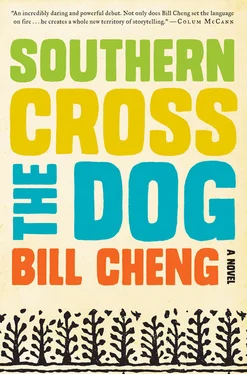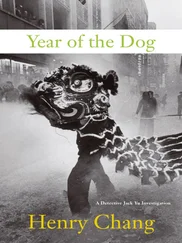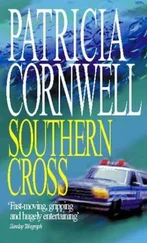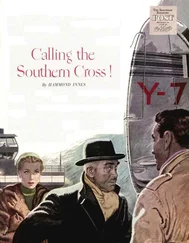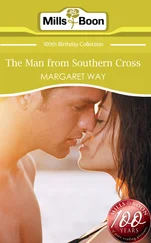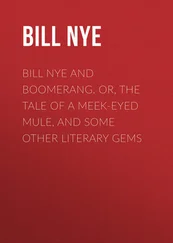That night I worried over what I would tell him. What words were there to see him through the coming years without his mother or his father? When we got to the wagons, there weren’t none I could muster. I prayed that when he was older, he would understand and that if my one blood child left would hate me, let him hate me for my weakness and not for my love.
Our boy looked at the horses, bewildered. Their breaths were steaming. I spun him ’round to face me, too hard, that there was a look of shock on his face.
I opened my mouth, but there wasn’t nothing coming out.
I stood up quick, shame and tears galling my throat. I sought out Lucinda Quinn, caught her look so that she understood that the boy was here, and then very quickly I turned away and left our one living son in a cold dark field.

THERE IS ONE MAN, A preacher, that sniffs around these parts, skimming up the poor souls. After days of trying, he’d managed to hunt me down. He come to me with his little black book and said that I was aggrieved, with my son lost and my wife ill, that if any soul needed comfort, it would be mine. Said the Lord was here to lighten my load if I was willing to let him. Then he opened up that little book, read some of I don’t know what, then he said that God made man for living and dying both, that all that happens is part of the Lord’s plan for me, and that we may all be rejoined in the kingdom of heaven, and on and on and on.
I told him that I surely wished that were true. But I am not a man for tall tales. My life is over. It begins and ends in the same place, where the past will keep happening.
And now it’s you and me again, Etta. And there are days when I am here beside you, holding your hand, that a great lonesomeness falls upon me. But then there are those brief, stolen moments where you look on me with such kindness. Not love, but kindness. And in my mind’s eye I can still see that cotton field, our bodies across each other, the scent of sweet clover in our lungs. And the grief becomes too much.
I look on you and I’m the one who has been left behind. Sometimes I can glimpse the world in which you live. It’s a place better than this one — where our sons still live, and we are young, and your husband is a better man, strong, assured of himself, and not this damned fool beside you, holding out his nigger heart.
Robert fled through bristlegrass and acacia, along the hogback into a deep blue strath below the dell. There was no moon, only thatches of starlight through the cloudbreak. That morning he’d cut his beard with his knife, clearing the lice from his face and blooding the air. For days the Dog ignored the traps he’d laid — snuffling at the poisoned meat then loping into the bushes. No matter where he went, it was always ahead of him. He’d double back, change directions, but at every turn, he’d find evidence of its passing. A broken trail, paw prints in the soft black earth.
He had seen it only once. The third day out it rained, and the gulch he’d fled across had engorged. He pulled himself up to a weeded ridge — the powder of his rifle wet and clotted. He began to strip away his clothes, and as his shirt passed over his head, he saw two yellow eyes sheltered under the lantana. He did not move. They watched each other, the rain passing between them. His knife was on his belt, new and strange. He did not move.
The Dog yawned and flicked its tongue. After a while, it drew away. Robert drank his canteen empty then refilled it in the stream. Then he drank again, hungrily, his throat throbbing. When the rain stopped hours later, he continued, trying to avoid the fresh tracks in the mud.
Now the wind heeled through the grasses, his hair, his clothes. He shivered and his eyes began to water. The clouds broke and a lobe of moon cast down across a meadow. A hundred yards away, the forest began again, and he strained his eyes toward the darkness. Somewhere the Dog howled. It was ahead of him, how far he did not know. It howled again, lonesome and cold, sliding up through the gusts. The wind changed. It was on his back now and at once, the howling stopped.
He wiped the wet from his eyes and got to his feet. There, in the dark, he saw a shape. They regarded each other. He brought his rifle up slowly and leaned into the sight. It stepped toward him, then circled. His fingers were stiff in the cold and when the shot discharged, the barrel swung into the wind. He recharged the rifle, but the shape was gone.
There was a low whistle. He turned. Across the dell, a train ran along the blue hills — two lights racing behind skirts of dogwood and mayhaw. It threw up a steam plume above the forest, then disappeared around the bend.
He headed back into the forest and built a bivvy and a fire beside a fallen tree. He let himself sleep into the late morning before picking up the trail again. He headed north, northeast, toward the hills where the train came through. The Dog kept a pace ahead of him, a few miles at a time, resting in places, before continuing on again. It was mocking him. Soon the forest fell away, leading out to a grass valley and a dirt road along the train tracks. At the crossing, he found a mound of scat, jeweled with horseflies. It’d been left in the square of rails like an offering. A car came down the road and Robert stepped to the side. He waved it down.
It must’ve been a Sunday. Inside the car, a white family was in their church clothes. The woman was holding down her straw hat. The man had his blond hair standing on end from the wind blowing through it. There were two boys in the back, all stockinged and blue-eyed. They looked at Robert, disgusted.
You know where this road goes past these hills?
Town of Anguilla, the man said. He looked Robert up and down. It’s got an ordinance.
Then the car sped off again.
Robert started walking.
Up the hill there was an old grain silo that hadn’t seen use in some time. He pried his way in with a metal pipe and had a look around. The grain stores were eaten through and rotten with rats. The roof was falling apart so the ceiling was freckled with sky. He found a lamp with a little oil in it, and he broke it down to make a tiny fire pit there in the dirt. Then he slept with his back against a wall, the fire burning to keep the rats away. His sleep was dreamless and when he woke, it was already dusk. His throat was sandpaper, and coils of heat were searing his lungs. He stood himself up. His body felt like concrete. He picked up his gun, his pack — the whole weight of the world on a strap against his shoulder. He trudged on.
Three miles out, he could see where the town began — a cluster of clapboard buildings, run-down and slaughtered by the weather. There was music coming from one of the houses, something bright and full of longing. He followed it down the road and came to a juke house off the main road. Buckets of ice sat on the porch. Inside a Negro minstrel was sitting on a stool, working a cigar box in his lap. The front of it had been hollowed out and three steel cables stretched down from the top of a broom handle. The minstrel slid the back of a knife along the cables, making them sound. There were chairs arranged around him, a drunk splayed out on one of them, and on the side wall, the barman was chipping a block of ice into a tub. His shirtsleeves were rolled, and he looked up at Robert, wiped his mouth, and went back to his business.
Robert sat down at the counter and listened to the minstrel play. The man fretted the knife against the strings, rang the cables low and rusty, then glided into a high hum. Robert felt his soul rising out of him, leaving him empty.
Читать дальше
